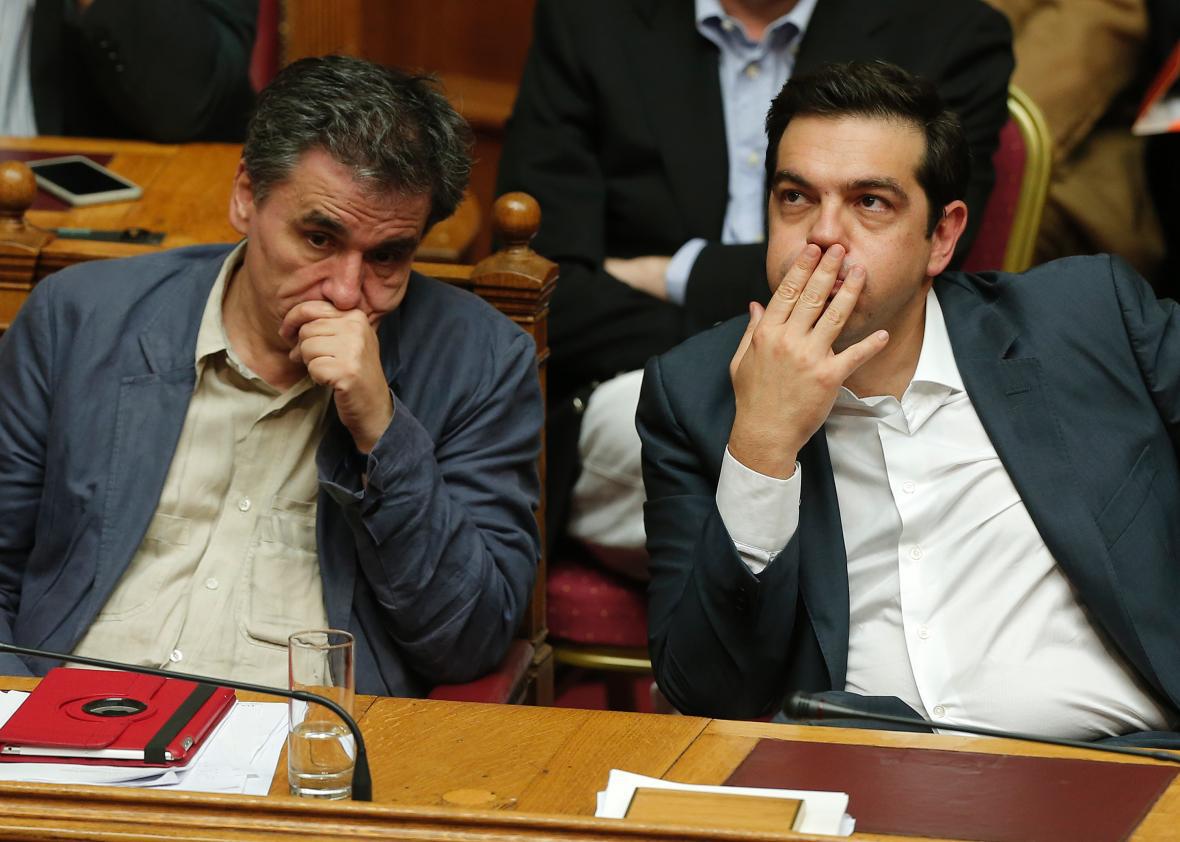Greece just came a little bit closer to possibly getting a bailout package that will keep it in the eurozone. Following an emotional debate and early-morning vote, the country’s parliament approved a raft of austerity measures that its international creditors had demanded as a first step before negotiating a final rescue deal. While Prime Minister Alexis Tsipras faced a a number of defections from his own left-wing party, Syriza—most notably, from former finance minister Yanis Varoufakis—the package ultimately passed easily, 229 to 64, with six abstentions, thanks to yes votes from opposition members.* The rebellion within Tsipras’ ranks may force him to lead going forward with the help of a unity government. But he seems to have survived the vote in charge.
So Greece has officially capitulated to Europe’s demands. But it remains unclear whether its creditors will be able to come to an accord on the bailout. The International Monetary Fund has said it won’t participate in a rescue unless the deal offers enough debt relief to make Greece’s obligations sustainable long term, something that Germany and other Northern European hard-liners seem loath to do. Meanwhile, Greece’s financial condition is deteriorating pretty much by the minute thanks to the capital controls that have put its economy on lockdown, and Europe’s powers are still squabbling over how to provide a large bridge loan to keep the country afloat until a final deal can be reached. (Long story short: Officials want to tap a resource that the United Kingdom helps fund, but the British don’t want their money on the line.)
Still, the vote was a crucial, if painful, first step. Throughout the night, Greek leaders, including Tsipras and his finance minister Euclid Tsakalotos, emphasized that the bailout was a bitter pill they they had little choice but to swallow. If there was any silver lining, it lay in the hope that Greece might get additional debt restructuring, perhaps along the lines of what the IMF has proposed.
Saying yes to the bailout “was a decision which will be a burden for me for the rest of my life,” Tsakalotos said. “I don’t know if we did the right thing. But I know we did something to which there was no alternative.”
*Correction, July 16, 2015: The post originally misstated that 228 members voted in favor of the package.
